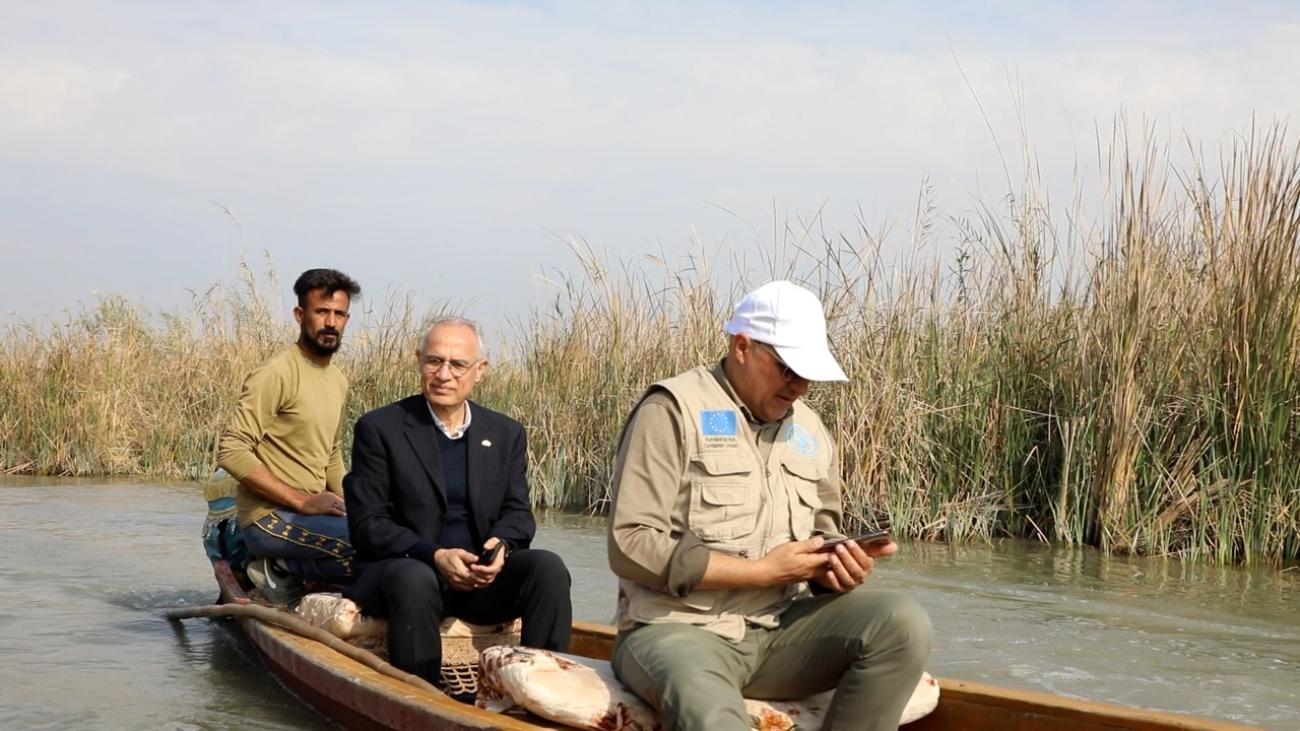Moving from humanitarian to development solutions for Iraq’s internally displaced population

Iraq is emerging from years of instability and conflict, and there are clear signs of hope for its future.
My tenure as UN Resident Coordinator in this country only began recently, but I have already witnessed significant progress. As of June 2022, of all six million people displaced during the Daesh crisis, over 81 per cent have returned. About 2.5 million people in 2022 needed assistance compared to 11 million in 2017. This has been possible due to the political commitment of the Government, support of humanitarian and development partners and the resilience of the people of Iraq who have made great strides towards a more peaceful and stable nation after years of untold hardships.
In 2014, the UN and the international community mobilized, at the request of Iraq, to deliver much needed assistance to this country in its difficult hour as it struggled to withstand a devastating security and humanitarian crisis. Five years after the territorial defeat of ISIL/Da’esh, followed by incessant and determined recovery, reconstruction and reconciliation efforts, the shockingly high number of people who needed humanitarian assistance which stood back then at 11 million has dropped recently to 2.5 million.
This decline has begun to pave the way for a transition from humanitarian to development solutions for Iraq’s more than 1 million internally displaced population (IDP). This shift is reflected in the Government’s adoption of the National Plan on Internal Displacement and the request to include a pillar on ending internal displacement in the UN Sustainable Development Cooperation Framework which was adopted on 5 September 2021, the key roadmap that guides our UN team’s support to Iraq for the Sustainable Development Goals.
Local partnerships for long term development
Building partnerships with the authorities at the national and local levels, including with the Kurdistan Regional Government has been critical in this transition.
As the Resident and Humanitarian Coordinator, I have the responsibility to bring the various parts of our UN system together to strengthen the coherence of our support and actions and amplify the impact of our contribution to the progress of Iraq.
Our partnership with the Ministry of Labor and Social Affairs, for example, has led to the inclusion of the most vulnerable IDPs and returnees in the national social safety net which represents a solid demonstration of the Government of Iraq’s commitment to finding long terms solutions to key development challenges. This came following months of consultations and collaboration with the Ministry to ensure the effective inclusion of IDP and returnees into the Government’s support systems.
By cooperating closely with national authorities and building strategic partnerships and dialogue with other critical national and local stakeholders, we have already delivered significant results. Last year the UN and partners helped more than 4.2 million Iraqis, including displaced populations, increasing access to services in priority sectors as well as implementing 629 infrastructure projects that rehabilitated thousands of private and public buildings, including schools and medical centers. More than 5 million m2 of contaminated land was cleared of mines and explosive ordnance in Mosul, Fallujah and Ramadi. These are just some of the examples of the impact we have had.
Towards a durable and dignified future
As we move towards building a more sustainable long-term development path for Iraq and its IDP population there are still many challenges which lie ahead, including ongoing issues of community reconciliation and the lack of shelter and livelihood opportunities which hinder the voluntary and safe return of many IDPs to their areas of origin.
Through our advocacy, capacity building and technical assistance, we will continue to support Iraq towards the right trajectory for sustainable development, including addressing climate change and water crisis, and supporting the reintegration of internally displaced persons (IDP) returnees whilst identifying durable and dignified solutions for the remaining IDPs across the country.
Written by Deputy Special Representative of the Secretary-General, UN Resident Coordinator and Humanitarian Coordinator for Iraq, Ghulam Mohammad Isaczai. Edited by UNDCO.
To learn more about the work of the UN in Iraq visit Iraq.un.org













